Publications
Articles, publications, books, tools and multimedia features from the U.S. Institute of Peace provide the latest news, analysis, research findings, practitioner guides and reports, all related to the conflict zones and issues that are at the center of the Institute’s work to prevent and reduce violent conflict.
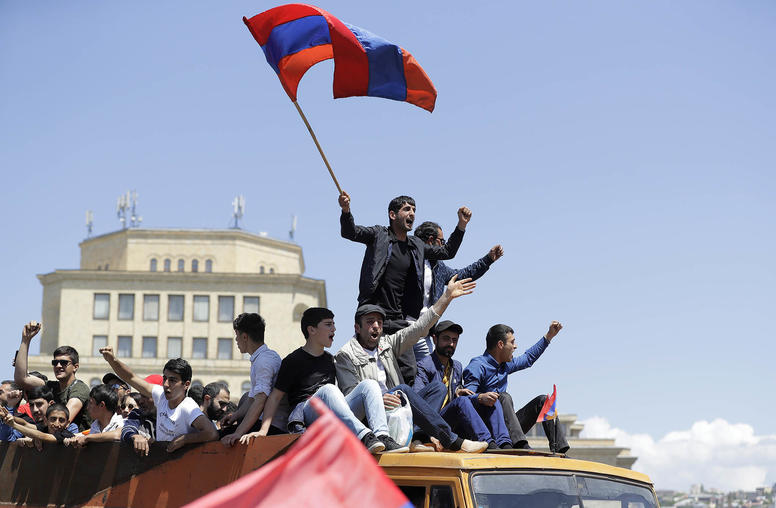
Overcoming the Challenges of Transitional Mobilization
Nonviolent action can be a powerful way to bring about peaceful transitions from autocratic rule to democracy. But even when initially successful, movement leaders often face significant challenges, from frustrations that grievances are not addressed quickly enough to counterrevolutions aimed at restoring the authoritarian status quo. This report examines two recent transitions—the 2011 Jasmine Revolution in Tunisia and Armenia’s 2018 Velvet Revolution—and presents recommendations for improving the likelihood that change initiated through nonviolent action leads to robust and lasting democracy.

Leo Siebert on the State of Tunisia’s Democracy
Last summer, “Tunisians had really reached a breaking point in their frustration with the previous government” and welcomed President Kais Saied’s dissolution of parliament, says USIP’s Leo Siebert. But that hope “is now shifting to apprehensiveness that things might not be going in the right direction.”

Tunisia: Examining the State of Democracy and Next Steps for U.S. Policy
Dr. Elie Abouaoun, director of Middle East and North Africa Programs, testified on October 14, 2021 at the the House Foreign Affairs Subcommittee on the Middle East, North Africa, and Global Counterterrorism's hearing on "Tunisia: Examining the State of Democracy and Next Steps for U.S. Policy."
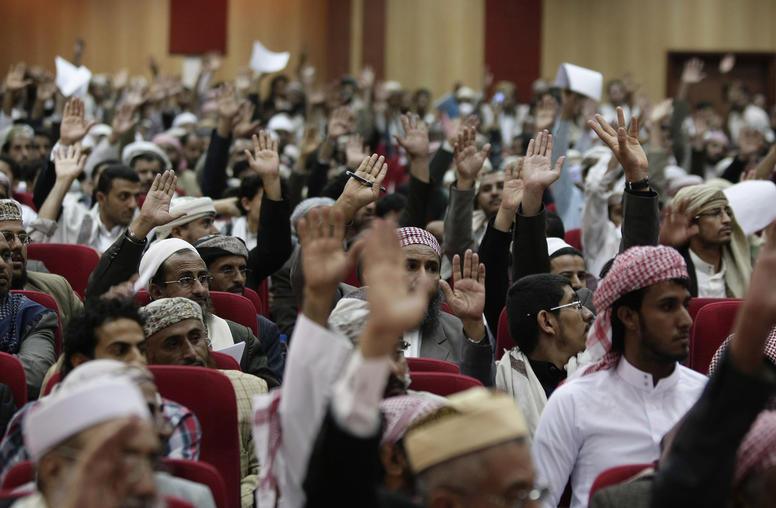
Dialogues nationaux sur la consolidation de la paix et les transitions créativité et pensée adaptative
Dans le meilleur des cas, les processus de dialogue national promettent d’apporter un élan décisif à la transformation inclusive du conflit. Ce rapport examine les dialogues dans six pays: la République Centrafricaine, le Kenya, le Liban, le Sénégal, la Tunisie et le Yémen. Ces divers processus montrent les possibilités de favoriser le dialogue, de forger des accords et de progresser vers la paix; et le rapport offre des conseils détaillés sur les possibilités et les aspects pratiques pour ceux qui envisagent d'organiser un dialogue national.
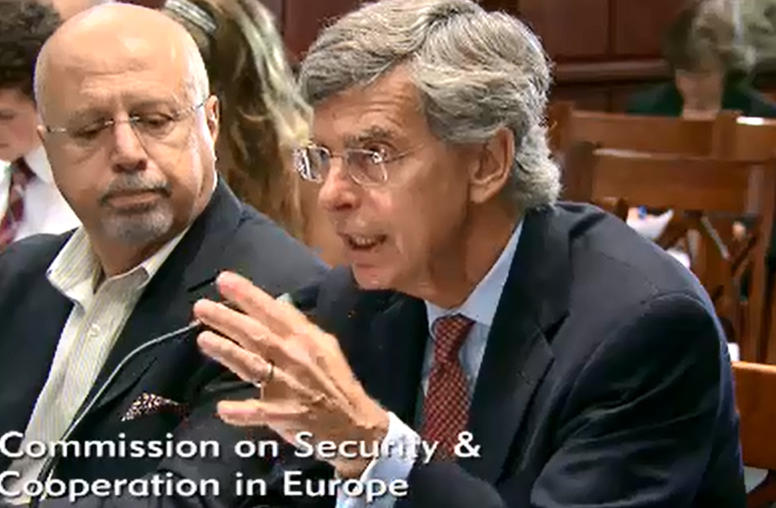
Political Pluralism in the OSCE Mediterranean Partners
William B. Taylor, vice president for Middle East and Africa, testifies before the United States Helsinki Commission on OSCE Mediterranean Partners.
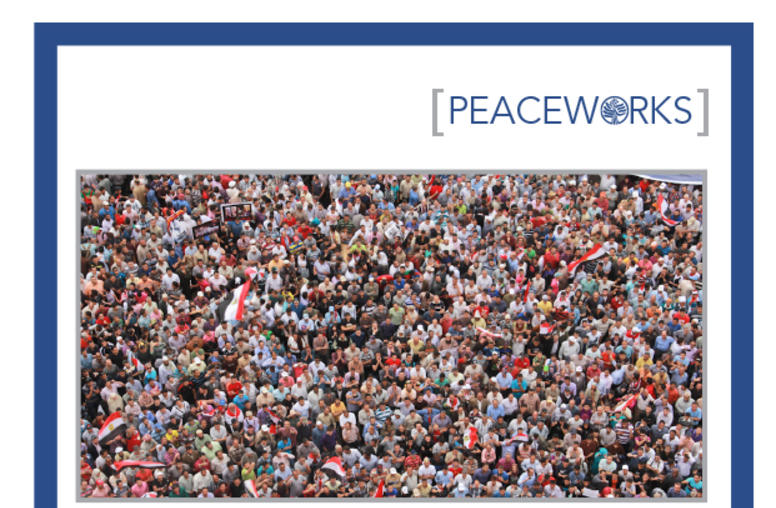
Participatory and Inclusive Constitution-Making
In the wake of the Arab Spring, citizens across the Middle East and North Africa are demanding reforms from their governments. How these governments respond to their people and promote inclusive constitution-making processes may determine whether their new social compacts lead to a durable peace. This report draws from the work of scholars and constitution makers who have been exchanging ideas about how to ensure that modern constitutions incorporate the needs and aspirations of the citizens ...
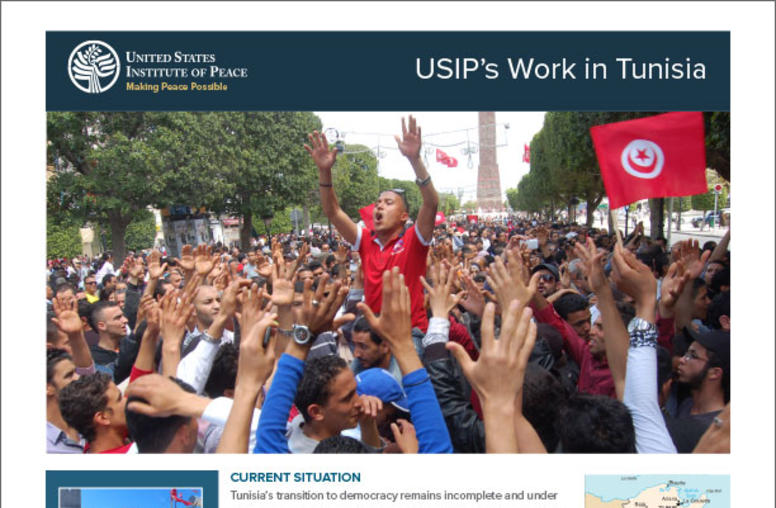
The Current Situation in Tunisia
Tunisia’s transition to democracy remains incomplete and under stress. Since the presidential measures to suspend the parliament, dismiss the government and draft a new constitution were enacted in 2021, socioeconomic conditions have continued to deteriorate, and risks of unrest have increased. Meanwhile, the ambitions of the 2011 revolution for rule of law, accountability, economic prosperity and human dignity are far from being realized. USIP works with Tunisians to improve national and local governance and security, rebuild trust and strengthen civil society.
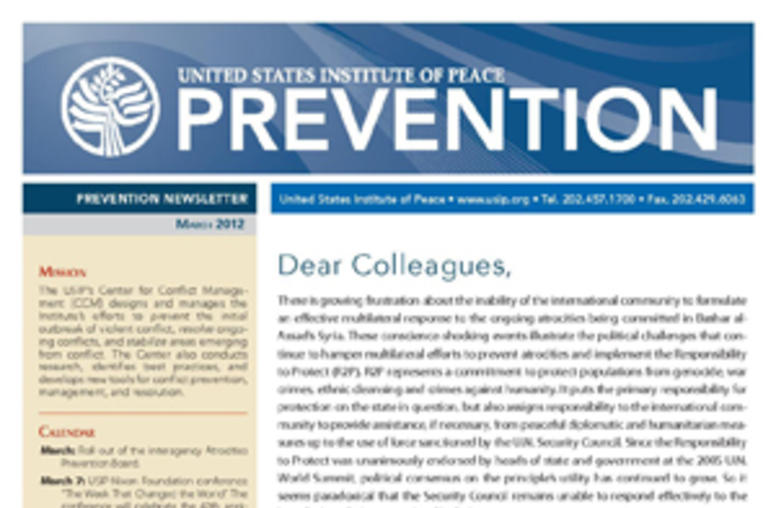
USIP Prevention Newsletter - March 2012
The March 2012 Prevention Newsletter features a spotlight on U.S.-Pakistan Relations: The year 2011 saw a progressive deterioration in the U.S.-Pakistan relationship. But despite the fact that mutual mistrust is probably at an all time high, there is no appetite to allow the relationship to rupture.
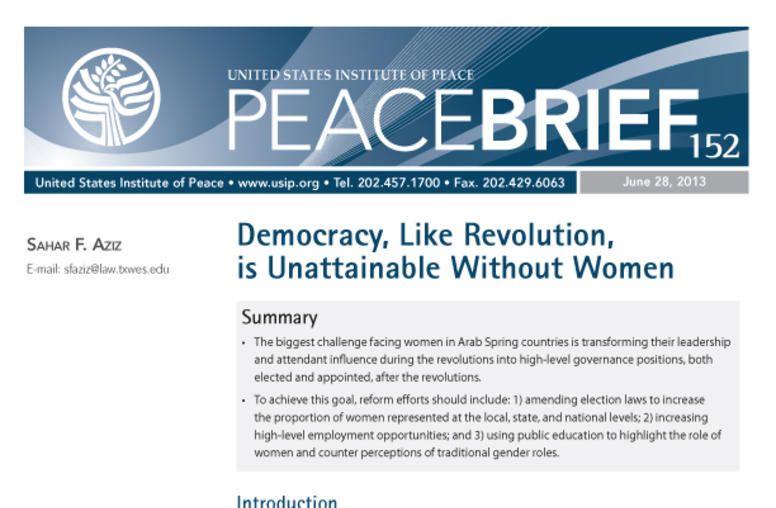
Democracy, Like Revolution, is Unattainable Without Women
In this peace brief, author Sahar F. Aziz argues that the biggest challenge for women in Arab Spring countries is transforming their leadership and influence into high-level governance positions, both elected and appointed.
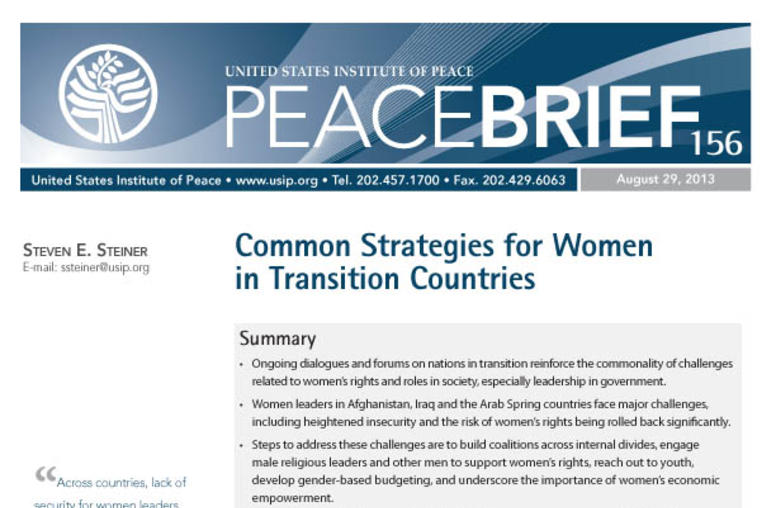
Common Strategies for Women in Transition Countries
An expert dialogue on women in transition countries brought together 14 women leaders from Afghanistan, Iraq, Libya, and Tunisia to work together and identify issues specific to each country and determine common problems. USIP’s Steven Steiner summarizes their recommendations on how to overcome the challenges.